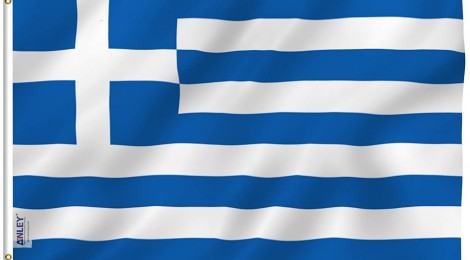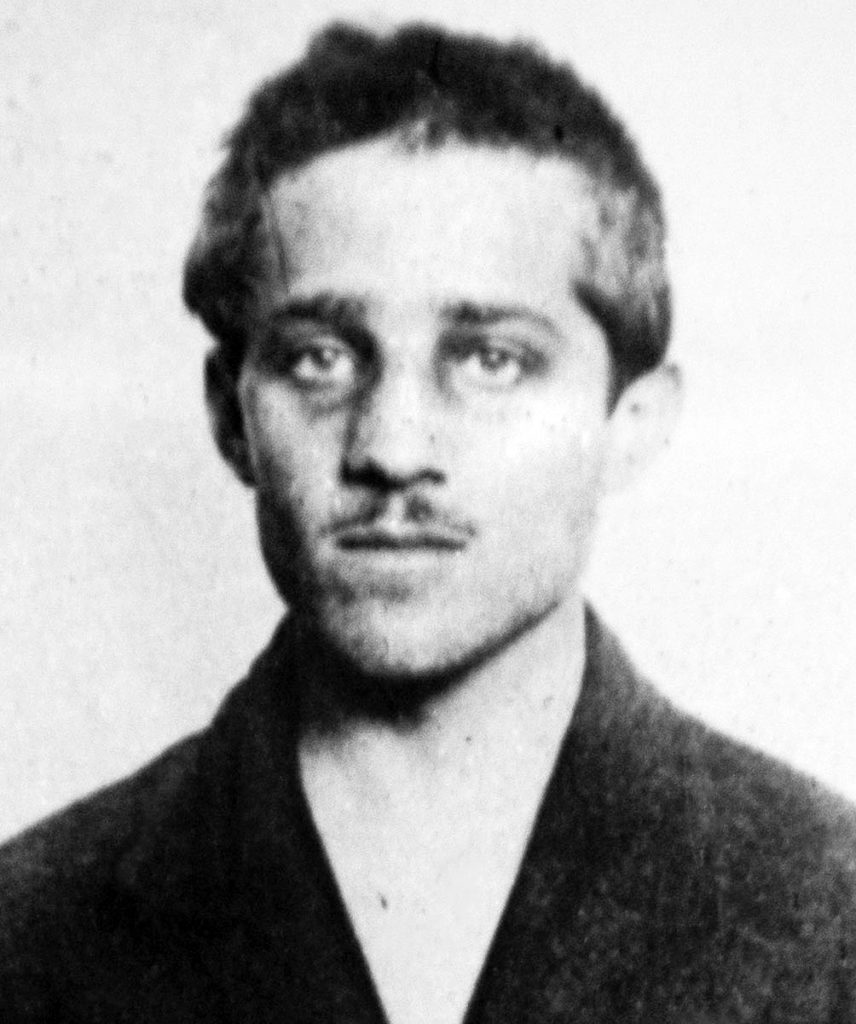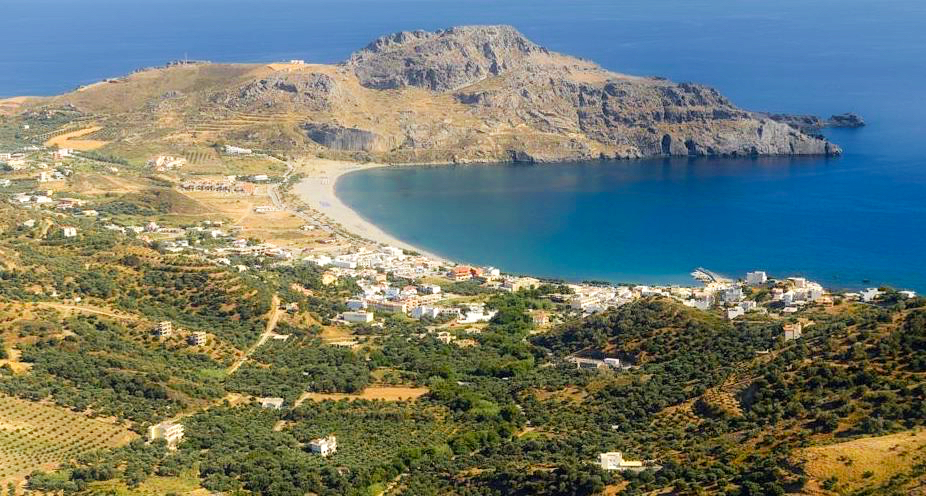
Brexit and Greece and the resistance that froze fascism
 Today’s BBC online has a feature about the Cretan Resistance, which reminds me of my first visit to Crete, aged ten, tracing the path of the retreating Allies from the German landing points in Chania in 1941, in the company of my uncle, a historian of some quality and a Greek Air force General at that time. here is my recollection of Crete in 1941, when Germany was winning so much their leader asked “Are you tired of winning yet.”
Today’s BBC online has a feature about the Cretan Resistance, which reminds me of my first visit to Crete, aged ten, tracing the path of the retreating Allies from the German landing points in Chania in 1941, in the company of my uncle, a historian of some quality and a Greek Air force General at that time. here is my recollection of Crete in 1941, when Germany was winning so much their leader asked “Are you tired of winning yet.”
First off, In May 1941, Hitler tired of Italy failing to take Greece, as Mussolini was supposed to do in his part of the AXIS agreement. Greek Communist led resistance was proving too much for the Italian Army, so, impetuously as it turned out, Hitler decided to send overwhelming force, his superior military, to end this embarrassment to the AXIS. The German succeeded where the Italians had failed, conquering Greece in just 6 weeks. It was a one-sided battle when looking at the forces on both sides. Hitlers military had the best of everything;
leadership, battle plan, fighting spirit, the best God on their side at that time (The Catholic one) and the most effective assault weapons ever made. Catholic God – 1. Greek Orthodox God – 0.
German victory in Greece came at a price that was not immediately apparent. At that moment in History, when Hitler decided to bail out Mussolini from the humiliation of his Greek military failure, Operation Barbarossa was about to begin. The biggest assembly of men and military tools ever gathered, for the purpose of taking Russia, was preparing on the Russian border. Operation Barbarossa was the code name for the Axis invasion of the Soviet Union, which started on Sunday, 22 June 1941. Hitler had decided to break his August 23, 1939, non-aggression pact with Stalin and take Russia before the winter set in.
22 June is about 6 weeks later than it would have been IF Hitler had not had to delay to vanquish Greece.
I believe, although I have read historical account’s that do not, the fact the German Army found themselves exhausted on the outskirts of Moscow when the cruel winter bit, that cost them everything, is because they started the Operation Barbarossa 6 weeks too late. Or at least, were delayed by the resources shift to the Greek occupation.
Six weeks late BECAUSE of the effective Greek Communist led resistance holding them up. Perhaps, more than any single other cause, Greek resistance in 1941, delaying Operation Barbarossa start by six weeks led to Germany’s eventual defeat, first by the Russian winter, and later by the Russian Communist Army.
Communist forces in Greece and Russia, more than any other political demographic, vanquished Catholic fascism.
Why harp on about the Greek communists?
Because their role is not properly acknowledged. Prejudiced histrocially by the same anti Communist prejudice Churchill applied during and after WW2. Churchill recognized the communist threat and after the tide turned, tried unsuccessfully to turn the assembled Allied Army against their Soviet Allies, to end the Communism he saw as the real threat to world peace. He failed to cinvince the war weary Americans, but he managed, very successfully to persecute the Greek communists. The same allies he depended on during the war, who suffered tremendous losses to keep up the pressure on the occupying Germans. Many former resistance heroes were jailed after the war – as communists. Churchills’ intelligence encouraged a climate of disgraceful persecution of Greeks, demonized by any association with communism, whether true, or not. Victims included my own Grandfather, Christos Evangelou, falsely denounced along with Yiannis Varoufakis own father, in the Churchill inspired purges that followed the Red Army victory in Berlin.
That though is a different story. A version of History that has been subject to many nationally motivated re interpretations as told by the victors. Fact is, my Grandfather was not a communist at all. But served hard time in a re education camp just because someone was rewarded for denouncing him as a communist. The British anti-communist position offered a bounty-reward system for informants. And like confessions made under duress, many innocents were found guilty and were persecuted. In many cases, although not that of my poor old Grandfather, Christos, the persecuted were in fact heroes of war.
Back to the battle for Crete. In 1941.
Symbolically, the place where this deleterious effect on Operation Barbarossa is best exemplified is the battle for Crete, and the evacuation, Dunkirk like, of retreating vanquished allied forces from Sfakia.
I had a first hand visit to the battlefield – the Cretan theatre of war, in 1971. My family birth-name is Ανδρέας Broulidakis. That name originates in Sfakia. I am thereby a Sfakiano, and this was my first trip back to the fishing village on the South West tip of Crete where my ancestors prospered, mostly as Ship Captains, for centuries.
Aged ten, in June 1971, I was sent from my home in Johannesburg, flying alone from Jan Smuts airport on a Boeing 707 to Athens to visit my Patrithia. Fluent in Greek I was sent for 6 weeks on a tour of Greece arrang ed by my father and facilitated by my uncle Elias, at the time a General in the Greek Airforce. (So my tour included visits to key NATO bases and watching live drills of American made missiles taking down aircraft. I also watched Phantom Jets in action. And saw first hand how important NATO and a European Union was for all of Europe.)
ed by my father and facilitated by my uncle Elias, at the time a General in the Greek Airforce. (So my tour included visits to key NATO bases and watching live drills of American made missiles taking down aircraft. I also watched Phantom Jets in action. And saw first hand how important NATO and a European Union was for all of Europe.)
I was sent on this historocal visit by my father, Manoussos Broulidakis, a volunteer in WW2. Wearing a British Infantry Captains uniform, the six foot tall, handsome blue eyed young man from Sfakia in Crete (pictured astride his first car in Cairo) gave all he had as a young man in his twenties in 1939 to fuck-up Nazi’s who threatened freedoms he valued.
For 6 years, 1939 to 1945, carrying an officers side arm all the way through Africa and Italy, playing his role as an infantry captain in the eventual downfall of Hitler and his right-wing Catholic clan. His side arm throughout WW2, carried in a leather hip holster, was a Browning 1910 9mm, which became my side arm in my own war years later.  The identical weapon used by class warrior, the Serbian anarchist Gavrilo Princip to pop a 9mm cap in Franz Ferdinand’s ass in 1914, setting off WW1. I grew up fascinated by WW2 and my fathers courageous 6 years spent being explosively anti fascist. And having the actual gun that traveled around from 1939 to 1945, trying to fathom its anti fascist storyboard.
The identical weapon used by class warrior, the Serbian anarchist Gavrilo Princip to pop a 9mm cap in Franz Ferdinand’s ass in 1914, setting off WW1. I grew up fascinated by WW2 and my fathers courageous 6 years spent being explosively anti fascist. And having the actual gun that traveled around from 1939 to 1945, trying to fathom its anti fascist storyboard.
During my 6 week trip as a 10 year old, uncle Elias took me to Crete, driving the route of the retreating Allied Army in 19041, to Sfakia, to the village of my family name, Broulidakis. I located the family home. It was occupied by two old women dressed in black who, upon hearing my name, began a wailing process that included kissing my ten year old feet. They were concerned I would throw them out and reclaim my home. But I was not there for that purpose.
I was there for a crash course in Greek history, including events in 1941. I followed the path taken by the defeated, routed allied troops, some 20,000 Brits, Kiwis and Aussies. Pursued by angry murderous Nazis with the best killing tools available to any army up until that time, intent on their aggressive capture.
The British/Australian/New Zealanders evacuation strategy was to head south, aiming to scale the mountainous terrain between them and the harbor of Sfakia, where British ships small enough to enter the fishing boat harbor could evacuate them.
Their retreat could not have succeeded but for the resistance fighters, some with the same name as myself, who harried the Germans, in many cases, paying with their lives. Their successes against the Germans are widely recorded.
About 18,600 men of the 32,000 British troops on the island were evacuated. The surviving Allied troops escaped and many survivors never forgot their debt to the Greeks. Many Cretan civilians were shot by the Germans in reprisal during the battle and in the occupation.
A Cretan source puts the number of Cretans killed by Germans at 6,593 men, 1,113 women, and 869 children. German records put the number of Cretans executed by firing squad as 3,474 and at least 1,000 civilians were killed in massacres late in 1944.
The Cretans who, like me, placed dishonor below death. My lesson at age ten from that visit to my home village. Honor and doing the right thing is everything.
Every year after the war, survivors traveled from Autralia, New Zealand and the UK to Chania, to the location of the German air drop in 1941, where they commemorate their escape. I once met with three Australian WW2 veterans there for this memorial purpose in Chania. Last I heard, there are none left to carry on this tradition.
Bruno Brauer, commander of Fallschirmjäger-Regiment 1 during the invasion, became the Commander on the island. Post war he was arrested, tried, and executed by the Greeks in 1947. On the exact hour of the exact day the paratroopers started jumping out of their Junkers planes, he faced a firing squad in Athens.
His body was taken to Crete and buried there, in a grave which the resistance fighter, known as ‘The Cretan runner’, George Psychoundakis, spent some years of his later life tending. Think about what might make a former resistance fighter tend the grave of the German officer who ruled his Island? The reasoning for which will require that you read his book. It is an incredible story. And one I learned as a tremendous example of the unique relationship between Britain and Greece. In the parable between George Psychoundakis and Patrick Lee Fermor. The Cretan runner – a spectacular war hero – was jailed post war – denounced as a communist. One of the many dark shadows on Churchills legacy.
At this time of Brexit madness, I am going to bet that no Brexit voter has a blind jot of an idea of the deep historical bond that exists between Brits and Greeks. I doubt they even know the previous generation of Grecophile Brits, like Lord Byron. Who died in 1824, aged just 36, serving Greece in the battle of independence from the fascist style Muslims of Turkey. The Greek war of independence, after 400 years of Ottoman occupation. Lord Byron died of Sepsis and his body was returned for burial in the UK, missing one organ. “We return his body for burial in England but we keep his heart to be buried here, where it belongs.”
Symbolically, I have been both a Greek and a British citizen, with a passionate interest in the best for the people and culture of both. I never forgot those lessons learned during my 1971 visit; including my conversation with the original collector of the bits left behind by the participants of that war, assembled in his home-museum in Askifou, Skafia.
I was taken to visit this guy by Unclke Elias. The introduction included presenting me with a shot glass of Raki , before he shared his own expereince as a ten year old in 1941. I did neck the Raki in one shot. I still remember that taste.
This old guy, with the Raki bottle, was the first organized Cretan kid to go around picking up bits of things, from his home above Sfakia. Like pieces of shot down planes, British and German guns and ammunition. And so on; the paraphernalia of the battlefield.
I spent a few hours soaking up this remarkable opportunity, listening to his recall of memories from that time. Clearly many Cretans laid down their lives to delay the Germans long enough for the allies to evacuate the Island, after which they faced terrible repercussions from very nasty Germans. (Over 8,000).
My guide, the first museum man, whose name sadly I forget, was a young man when the Nazis came, 10 in 1941, “I as the same age you are now” and started his collection of scavenged bits even while they were still in occupation. I see in the BBC story, abou tthis man, that he has since passed, but the memories of his collection and his words live on for me.
I am so pleased to see his story told to a wider audience, by the BBC, by a new generation who preserve the artifact reminders of that war that shaped Europe – and the bonds between European nations. I see my guides son still runs the museum (detailed below). Which I can only suggest as an extremely strong recommend.
I recommend the book THE CRETAN RUNNER for an astonishing first person account of this hugely significant event in the formation of post war Europe. By George Psychoundakis.
In the cluster of houses near the harbor in the picture below is the house where my grandfather, Ανδρέας Brouldakis, son of Manoussos Broulidakis, son of Ανδρέας Broulidakis, son of Manoussos Broulidakis, whose father was Ανδρέας Broulidakis, himself the son of Manoussos Broulidakis, lived.
I don’t know much about the 9th generation backwards, but all since were ships captains. And all fought ideological oppression all of their lives. Literally.
400 years of fighting genocidal Muslims – like the Pasha of Crete – The Muslim overlord, who skinned resistors alive in front of their families to deter rebellion. Like my Sfakiano relative Ioannis Vlachos, who died this way in 1771. My bloodline has been fighting right-wing oppression for many centuries.
While I am not a ships-captain like the last seven Andreas Broulidakis’, I am genetically predisposed towards fighting oppressive right-wing beliefs. It is not my fault right-wingers hate me. Its my DNA and my familiarity with the historical consequences of right-wing leadership choices that makes me concerned by religiously befuddled right-wing fascists. I am compelled by my ancestors to resist right-wing fascism.
It helps explain why I believe Brexit is for idiots. And Trumpeters represent the ghosts of racist fascists past in a manner endangering all anti-fascist victories of the past.
The war museum at Askifou, Skafia, that I visited is still there. His son owns it now. Visit if you can.
___________________________
Links to Andrew’s Amazon Page.
___________________________


Comments are closed, but trackbacks and pingbacks are open.